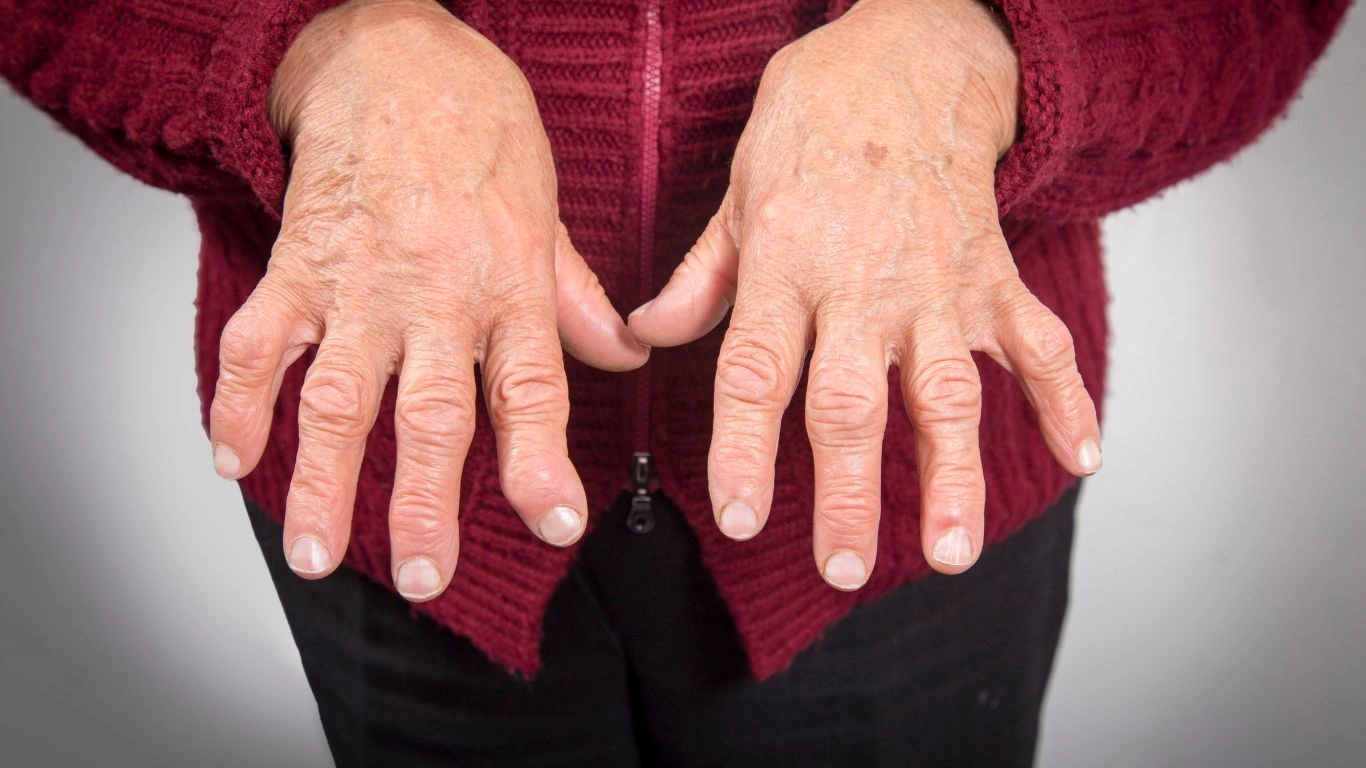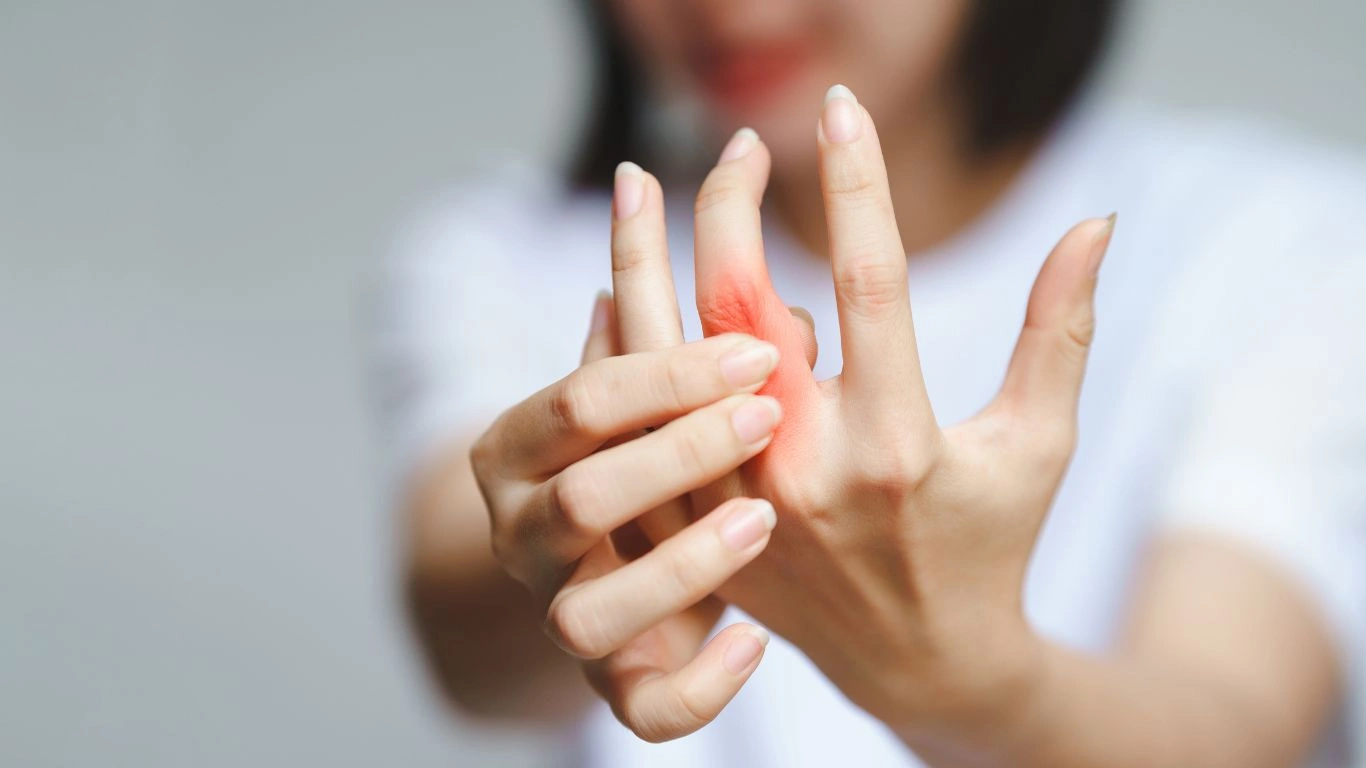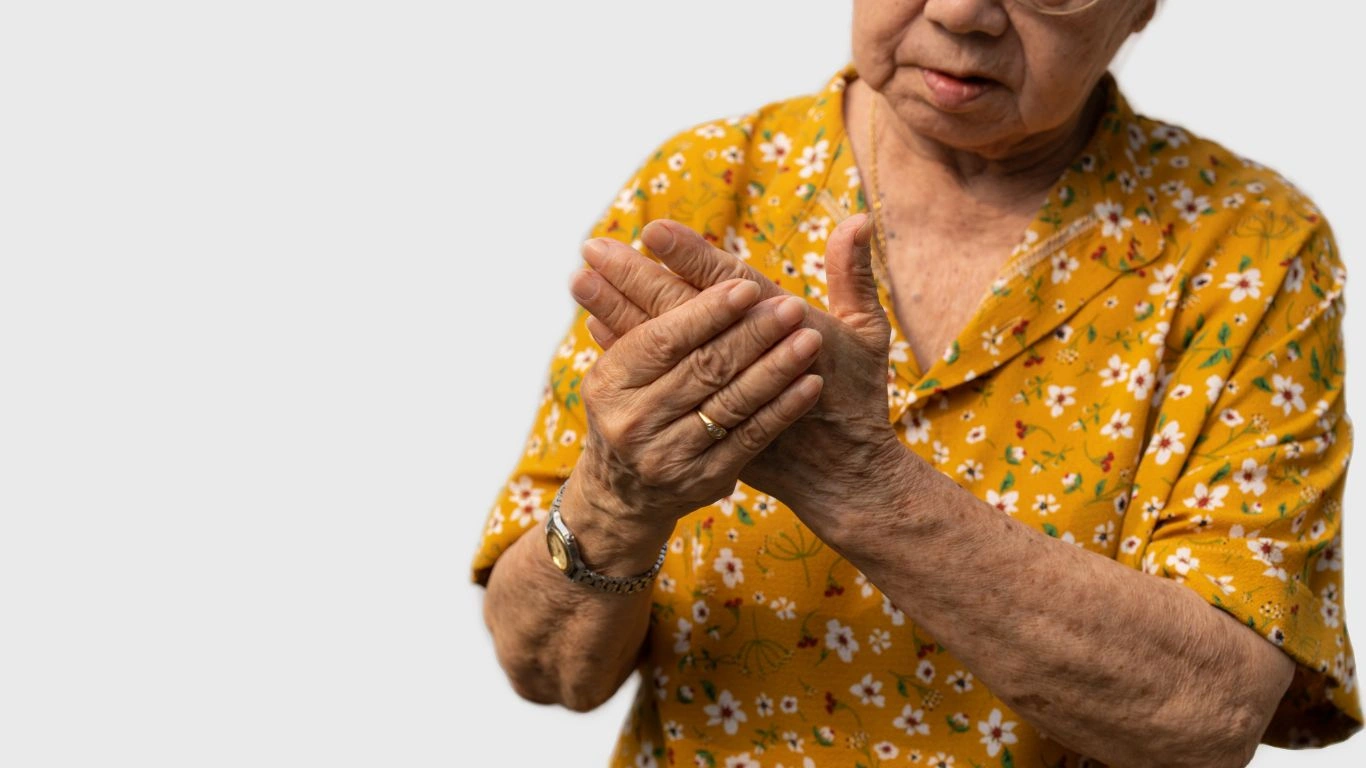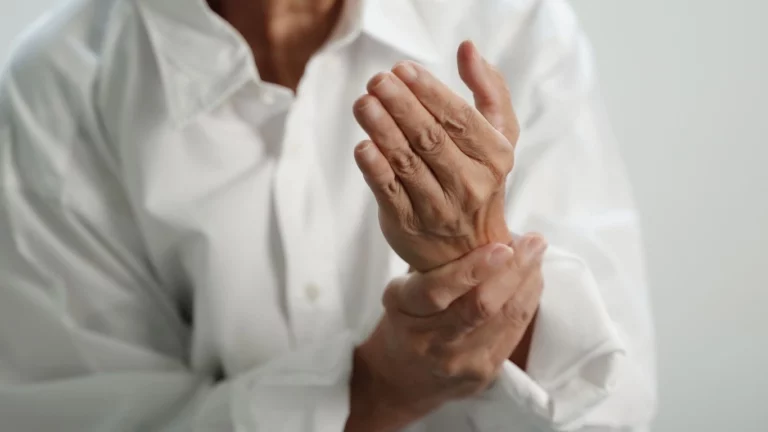Sleep Better with Rheumatoid Arthritis: Proven Tips for Restful Nights
If you’re living with rheumatoid arthritis and wondering how to sleep better at night, believe me—you’re not alone. As a Rheumatology Nurse Practitioner, I’ve lost count of how many of my patients have brought up this exact concern during our chats. The pain, the stiffness, the racing mind… it all hits hardest when your body is trying to rest. And honestly? That makes total sense. RA doesn’t clock out at bedtime. But here’s the good news: over the years, I’ve picked up some real-world strategies and insights—both from medical experience and the lived stories of people like you—that can make a serious difference.
Why Rheumatoid Arthritis Worsens at Night

Let’s break it down a little. Many folks tell me their joint pain and inflammation seem to ramp up in the evenings. Sound familiar? Well, that’s not in your head—it’s a real thing. Your body’s natural inflammatory rhythms actually fluctuate during the day, and unfortunately, they tend to peak while we sleep. Combine that with limited movement and cooler temps at night, and you’ve got a perfect storm.
I often tell my patients: “It’s not that your RA suddenly decides to be evil at 10 PM. It’s that your body’s natural defenses and routines are shifting.” Understanding why your rheumatoid arthritis acts up at night is the first step to fighting back.
The Cortisol Connection
Cortisol is your body’s natural anti-inflammatory hormone. It helps calm the immune system when it goes a little haywire (which it definitely does with autoimmune conditions like RA). But here’s the kicker—your cortisol levels drop at night. That drop is part of why you might feel more joint stiffness and pain after dark. It’s not just bad luck; it’s biochemistry.
Lack of Movement = More Stiffness
We all love a good rest, but when it comes to RA, being still for too long can lead to increased stiffness. I’ve had patients tell me they wake up feeling like the Tin Man from the Wizard of Oz—stuck, creaky, and miserable. That’s not your imagination. When you’re inactive, synovial fluid doesn’t circulate well through the joints, leading to more pain when you try to get moving again.
How to Sleep Better at Night with Rheumatoid Arthritis

Let’s get practical now. The good news? You’re not powerless against RA-related sleep issues. I’ve helped countless people troubleshoot their nighttime routines and build better habits that actually stick. Here are some tried-and-true ways to make nighttime more restful and less painful:
1. Choose the Right Mattress and Pillow
Your bed shouldn’t feel like a medieval torture device. Go for a mattress that offers medium-firm support—it shouldn’t sink in like a hammock, but it shouldn’t feel like you’re sleeping on concrete either. A supportive pillow is key too, especially if you’re dealing with neck or shoulder involvement. I often recommend memory foam or orthopedic pillows—they can make a world of difference.
2. Stick to a Consistent Sleep Routine
This sounds basic, but wow, it’s effective. Try to go to bed and wake up around the same time every day—even on weekends. A predictable rhythm tells your body when it’s time to wind down. Bonus points if you create a calming wind-down routine that doesn’t involve scrolling through your phone (guilty, I know).
3. Keep It Cool
Body temperature matters. A cooler room (ideally 60-67°F) can promote better sleep, especially if you’re dealing with night sweats from medications or inflammation. Light breathable bedding can also help, especially if you experience hot flashes or temperature fluctuations overnight.
4. Gentle Nighttime Stretches
Before bed, take five minutes to stretch out your joints—gently. I’m not talking full-on yoga class here, just some soft, circular movements of your wrists, ankles, shoulders, and knees. Nothing intense. Just enough to keep your joints mobile before you hit the pillow. One of my go-to’s? A quick seated forward bend—very mild but it works wonders on the spine and hips.
5. Experiment with Heat Therapy
So many of my patients swear by heat wraps or warm baths before bed. And hey, I use them myself sometimes. Heat can soothe joint pain, relax muscles, and help your whole nervous system chill out. A warm bath with Epsom salts is not just relaxing—it’s legit therapy for inflamed joints. Just keep it under 20 minutes so you don’t overheat or dry out your skin.
Common Medications That Impact Sleep

This one’s a bit of a double-edged sword. RA meds are crucial for managing inflammation, but they can also throw a wrench into your sleep routine. Steroids like prednisone, for example, are known to cause insomnia if taken too late in the day. I always recommend my patients take their corticosteroids in the morning for this exact reason.
- NSAIDs: Can reduce pain, but may upset your stomach or trigger restlessness at night.
- DMARDs: Sometimes cause nausea or dizziness, especially early on. Make sure to talk with your provider if they’re interfering with sleep.
- Biologics: These are game-changers for many, but timing matters. I’ve had patients adjust their injection days to avoid next-day fatigue or headaches that disrupt sleep.
When in doubt, always loop your rheumatologist or NP (hey, that’s me!) into the conversation if a medication seems to be affecting your ability to rest. A small timing adjustment or supplement could change everything.
Natural Sleep Aids and Supplements That Can Help

Okay, let’s talk natural helpers. Sometimes, even after tweaking your sleep routine and adjusting meds, sleep still doesn’t come easy. That’s where some gentle, non-prescription options can step in. I always recommend starting low and slow with supplements—talk to your provider (like me!) before adding anything new, especially if you’re already on RA meds.
Melatonin
This one’s kind of the OG of sleep supplements. Your body naturally produces melatonin, especially in the evening hours, to cue your brain that it’s time to sleep. A small dose (like 0.5 to 3mg) taken 30 minutes before bed can nudge your system in the right direction. Just don’t go overboard—it’s more of a gentle push, not a knockout pill.
Magnesium
I swear by magnesium for so many things. Not only can it help with sleep, but it also supports muscle relaxation and nerve function. Some of my RA patients even report fewer muscle cramps and less nighttime restlessness with a daily dose. You can find it in supplement form or soak in a magnesium-rich Epsom salt bath—bonus points for that relaxing bath ritual we talked about earlier.
CBD (Cannabidiol)
Now this one’s been gaining traction big time. I’ve had several patients use CBD oil or gummies to help manage pain and wind down at night. While the research is still developing, anecdotal evidence is promising. Make sure to buy from reputable sources, and always check for interactions with your current meds.
Herbal Helpers
Valerian root, chamomile, passionflower—these herbs have been used for centuries to help folks fall asleep naturally. You can try them in teas, capsules, or tinctures. Personally, I like a warm mug of chamomile tea at the end of a long shift. It’s soothing, and honestly, just the ritual of making it tells my brain it’s time to slow down.
Best Sleeping Positions for People with Rheumatoid Arthritis

This is a question I get at least once a week—“Tarra, is there a best way to sleep when you have RA?” And the answer is yes… kind of. The key is finding a position that minimizes joint stress and supports alignment. But let’s break it down by body area.
For Hands and Wrists
Try to avoid sleeping on your hands. I know it’s tempting, especially if you’re a side sleeper who tucks your hands under your cheek (guilty). Use wrist braces at night if you wake up with swollen or stiff fingers—they can keep things in a more neutral position and prevent compression.
For Hips and Knees
Sleeping on your side with a pillow between your knees can help align your hips and reduce strain. Some of my patients also swear by body pillows—it’s like being gently hugged into proper alignment. If you’re a back sleeper, a small pillow under the knees can reduce pressure on your lower back and hips.
For Shoulders
Shoulder pain can be brutal. If one side is flaring up, avoid sleeping directly on that shoulder. Use an extra pillow to prop yourself into a three-quarter side-back position—it takes pressure off while still feeling supported. And if you use heat therapy, applying a warm compress for 10 minutes before bed can help loosen things up.
Daily Habits That Improve Nighttime Sleep with RA

One of the biggest things I’ve learned over the years—both personally and professionally—is that what we do during the *day* affects how we sleep at *night*. Here are some underrated but super effective habits that can set the stage for better rest.
Get Moving (But Gently)
Exercise is medicine—especially when you have RA. But that doesn’t mean you have to be running marathons. Gentle movement like walking, stretching, swimming, or tai chi can improve joint flexibility and reduce inflammation. Just avoid intense workouts right before bed, since that can actually keep you up.
Eat to Support Sleep
What you eat matters, especially in the evening. Heavy meals close to bedtime can mess with digestion and make it harder to get comfortable. I recommend keeping dinners anti-inflammatory (think salmon, leafy greens, quinoa) and light on sugar or caffeine. Chamomile or tart cherry juice can make a soothing nightcap, too.
Wind Down Mindfully
Sometimes RA flares are triggered by stress—and nothing fuels insomnia like a racing mind. I’m a big fan of mindfulness tools like guided meditation apps, soft breathing exercises, or even a gratitude journal by the bedside. It doesn’t have to be perfect, just something that tells your nervous system it’s safe to relax.
Set Tech Boundaries
Trust me on this one: screens before bed = trouble. Blue light suppresses melatonin and ramps up brain activity, which is the exact opposite of what you need before sleep. If you must check your phone, use night mode or blue-light filters. Even better? Try replacing screen time with a real book or soothing playlist.
- Pro tip: I keep a “sleep basket” on my nightstand with things that help me wind down—lavender oil, an eye mask, heat wrap, and yes, a paperback book with zero plot twists. Works like a charm.
All of this might sound like a lot, but I promise—it’s about progress, not perfection. Start small. Pick one thing to change this week and build from there. Because sleeping better with rheumatoid arthritis isn’t just possible—it’s 100% doable with the right approach and a little patience.
When to Talk to Your Rheumatologist About Sleep Issues

Sometimes we try all the tips and tricks—better sleep hygiene, supportive pillows, nighttime stretches—but the sleep still just isn’t happening. That’s your sign to loop in your rheumatology provider. Seriously, don’t tough it out in silence. If your rheumatoid arthritis is consistently wrecking your ability to sleep better at night, it’s time for a deeper dive.
As a Rheumatology Nurse Practitioner, I’ve had so many patients assume that poor sleep is just “part of the deal” with RA. And sure, it’s common—but that doesn’t mean it’s acceptable or untreatable. Poor sleep can ramp up inflammation, affect your mood, and even worsen pain sensitivity. It’s a cycle, and we need to break it.
What to Bring Up During Your Appointment
When you do talk with your provider (and please do!), come prepared with a few notes. It doesn’t need to be anything fancy—just jot down:
- How often you’re waking up during the night
- Whether your pain is worse at certain times (early morning, 2 a.m., etc.)
- What you’ve already tried—supplements, heat, sleep positioning, etc.
- Any medications or supplements you take near bedtime
This gives your provider (me, or someone like me!) a clearer picture of what’s happening and what can be adjusted. Whether it’s changing med timing, adding a sleep aid, or investigating another condition like sleep apnea or restless leg syndrome, there are options—and that’s important to remember.
Managing Flare-Ups That Disturb Your Sleep

If you’ve ever been woken up at 3 a.m. by a raging RA flare, you know it’s a special kind of frustration. Flare-ups don’t care what time it is, and nighttime can be one of the worst times to experience sudden joint swelling or stiffness. Here’s what I often recommend to patients when those middle-of-the-night moments strike:
1. Don’t Panic—Breathe First
Easier said than done, I know. But when a flare hits at night, your stress response (aka cortisol spike) can make it worse. Sit up slowly, take a few deep breaths, and center yourself. Panic creates tension, and tension feeds pain. A calm mind won’t fix everything, but it definitely helps.
2. Keep a “Flare Kit” by Your Bed
This is something I started doing myself and now suggest to everyone with active RA. Here’s what mine has:
- Instant heat packs or a microwavable heat wrap
- Over-the-counter NSAID (if it’s okay with your provider)
- A water bottle (hydration matters)
- Topical pain cream like diclofenac
- CBD balm or essential oils (lavender is my go-to)
That way, you’re not fumbling around in the dark while in pain. You’ve got a plan, and it’s right within arm’s reach.
3. Try Gentle Mobility, Not Full-On Movement
Once the initial pain subsides, doing a few gentle joint rolls or even slowly walking around the room can help the stiffness break up a little. I call it “respectful movement.” You’re not trying to exercise—you’re just waking the joints up kindly.
RA, Sleep, and Your Mental Health
Let’s be real for a second—dealing with chronic pain and poor sleep night after night can mess with your head. Anxiety, depression, irritability, and brain fog aren’t just side effects—they’re legitimate consequences of poor rest. And yet so many people never talk about this part of the RA journey.
It’s something I always check in on with my patients. I’ll ask, “How are your moods lately?” or “Do you feel rested in the morning?”—and sometimes that opens the door to a bigger, more important conversation. If you’re feeling emotionally run down, it’s not a character flaw. It’s your body and mind asking for help.
Therapies That May Help
- CBT-I (Cognitive Behavioral Therapy for Insomnia): This is a super effective, non-drug approach to tackling chronic insomnia—especially when it’s tied to pain and anxiety.
- Talk Therapy: Sometimes just processing your pain and sleep struggles with a licensed therapist can lift a huge weight off your chest.
- Mindfulness-Based Stress Reduction (MBSR): A combination of meditation, yoga, and awareness exercises. Many of my patients find it’s a game-changer for their sleep and stress.
Don’t hesitate to reach out for mental health support if your sleep or your RA are dragging you down emotionally. Sleep isn’t just a physical issue—it’s tied to your whole well-being.
Empowering Yourself: Final Thoughts on Living (and Sleeping) Well With RA
Look, I won’t sugarcoat it—rheumatoid arthritis is a lifelong condition that brings challenges, and sleep is often one of the first things it hijacks. But with the right mix of strategies, support, and small consistent changes, it truly is possible to reclaim your nights. I’ve seen it firsthand, not just with my patients, but also with fellow RA warriors who’ve shared their stories and successes with me over the years.
You deserve restful, healing sleep—period. Whether that comes from adjusting medications, creating a cozy nighttime routine, trying new therapies, or all of the above, don’t stop experimenting until you find what works for *you*. And if you need a reminder now and then? You’ve got me cheering you on.
References
- National Institutes of Health (NIH)
- Health.com
- Centers for Disease Control and Prevention (CDC)
- Arthritis Foundation
Disclaimer
This article is for informational and educational purposes only and is not intended as a substitute for professional medical advice, diagnosis, or treatment. Always seek the advice of your physician, nurse practitioner, or other qualified health provider with any questions you may have regarding a medical condition or treatment.

Tarra Nugroho is a dedicated Nurse Practitioner with a strong foundation in family and preventive care. She brings both compassion and clinical expertise to her practice, focusing on patient-centered care and health education. As a contributor to Healthusias.com, Tarra translates medical knowledge into clear, empowering articles on topics like women’s health, chronic disease management, and lifestyle medicine. Her mission is simple: help people feel seen, heard, and informed—both in the clinic and through the content she creates. When she’s not caring for patients, Tarra enjoys weekend hikes, plant-based cooking, and curling up with a good health podcast.







